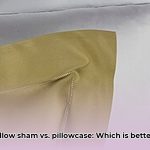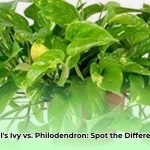Button ferns (Pellaea rotundifolia) are non-toxic to dogs, according to the ASPCA and other leading veterinary resources. So, if you’re a dog lover with a green thumb, you can likely breathe a sigh of relief! This also applies to the popular lemon button fern (Nephrolepis cordifolia ‘duffii’). However, while these ferns won’t poison your pup, this guide will cover essential information to ensure a harmonious coexistence between your canine companion and your leafy friends.
Understanding Button Fern Safety
While button ferns pose no toxic threat, excessive consumption of any plant material can cause gastrointestinal upset in dogs. Just like eating too much grass can lead to an upset stomach, the same principle applies to non-toxic houseplants. A few nibbles probably won’t harm your dog, but a fern feast could result in vomiting, diarrhea, or general discomfort.
Keeping Your Canine Companion Safe
Creating a dog-friendly home environment is key to minimizing any potential problems. Here are some practical strategies:
-
Strategic Placement: Elevate your ferns! Hanging baskets, high shelves, or plant stands can put them safely out of paw’s reach. See our guide on creative plant displays for inspiration. This is often the simplest and most effective solution.
-
Pet-Friendly Deterrents: Consider using pet-deterrent sprays. These often contain natural ingredients that discourage chewing without harming your pet. Always ensure the spray is specifically formulated for use around animals.
-
The Power of “Leave It”: Training your dog with a solid “leave it” command can be a game-changer. Consistent reinforcement will teach your dog to respect your plants.
Expanding Your Fern Family: Dog-Friendly Choices
Button ferns aren’t the only safe ferns for dog-loving homes. Here are a few more options:
-
Boston Fern (Nephrolepis exaltata): Known for their lush, feathery fronds, Boston ferns are a classic choice.
-
Staghorn Fern (Platycerium spp.): These unique ferns add a touch of the exotic to any space. They thrive mounted on wood or in hanging baskets, keeping them naturally out of reach.
-
Maidenhair Fern (Adiantum spp.): With their delicate, fan-like leaves, maidenhair ferns bring a touch of elegance to your indoor jungle. Maidenhair ferns can thrive best with ample moisture. Discover the best care by learning if Are foxtail ferns shade tolerant in Florida, for optimal growth.
-
Sword Fern (Nephrolepis obliterata): A hardy and easy-to-care-for fern, the sword fern is another excellent option.
-
Mother Fern (Asplenium bulbiferum): This fern develops small “baby” ferns on its fronds, adding a touch of whimsy to your plant collection.
Remember, even with non-toxic ferns, moderation is crucial. Always monitor your dog for any unusual reactions after they interact with a new plant.
When to Seek Veterinary Advice
If your dog shows any signs of illness after interacting with any plant – even a non-toxic one – contact your veterinarian. Symptoms like vomiting, diarrhea, excessive drooling, or loss of appetite warrant a check-up. The ASPCA Animal Poison Control Center is also an invaluable resource.
Addressing Common Concerns
“True Ferns” vs. “Fern Imposters”
It’s crucial to distinguish between true ferns and plants with “fern” in their common name. For example, the asparagus fern is not a true fern and is toxic to dogs. Always double-check the scientific name to be certain of a plant’s safety.
Why Prevention Matters
Even though button ferns are non-toxic, prevention is always the best approach. A dog-safe environment minimizes the risk of digestive upset and protects your plants.
Ongoing Research
The field of plant and animal interactions is constantly evolving. While button ferns are currently considered safe, staying informed about new research is always wise.
Creating a Harmonious Home
By understanding the nuances of fern safety, you can create a thriving indoor jungle that’s safe and enjoyable for both you and your furry friend. For a comfortable and eco-friendly sleep sanctuary, check out the pros and cons of bamboo sheets. They might be the perfect complement to your green lifestyle!
- Upgrade Your Sleep: Pillow Sham vs Pillowcase Guide - May 12, 2025
- Identify Devil’s Ivy vs Philodendron: Expert Guide - May 12, 2025
- Master Pepper Plant Spacing: Maximize Yields Now - May 12, 2025










